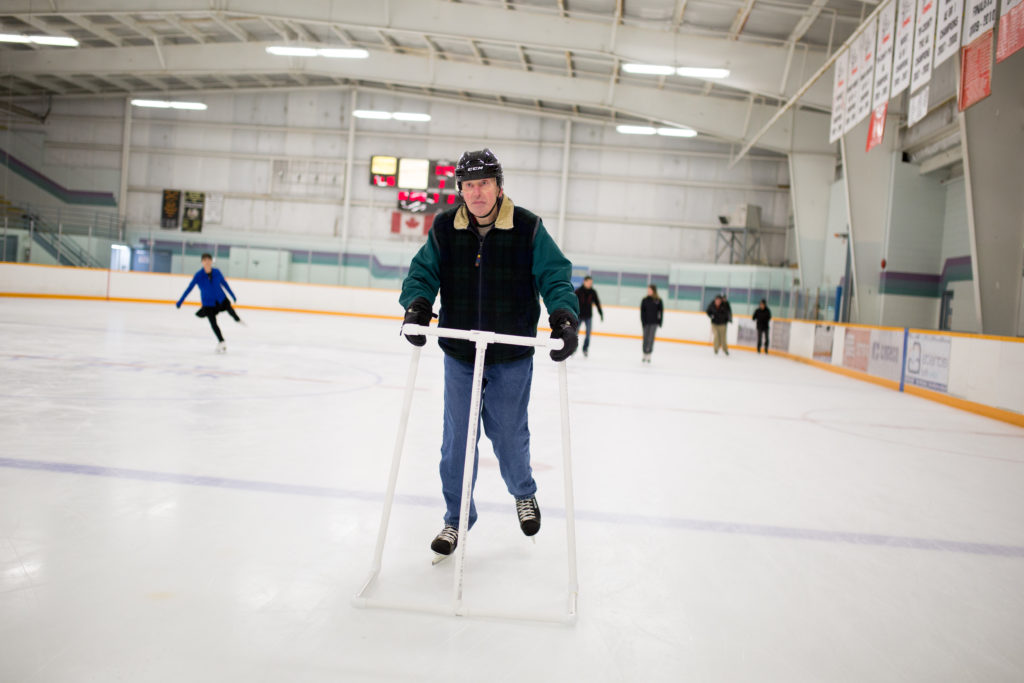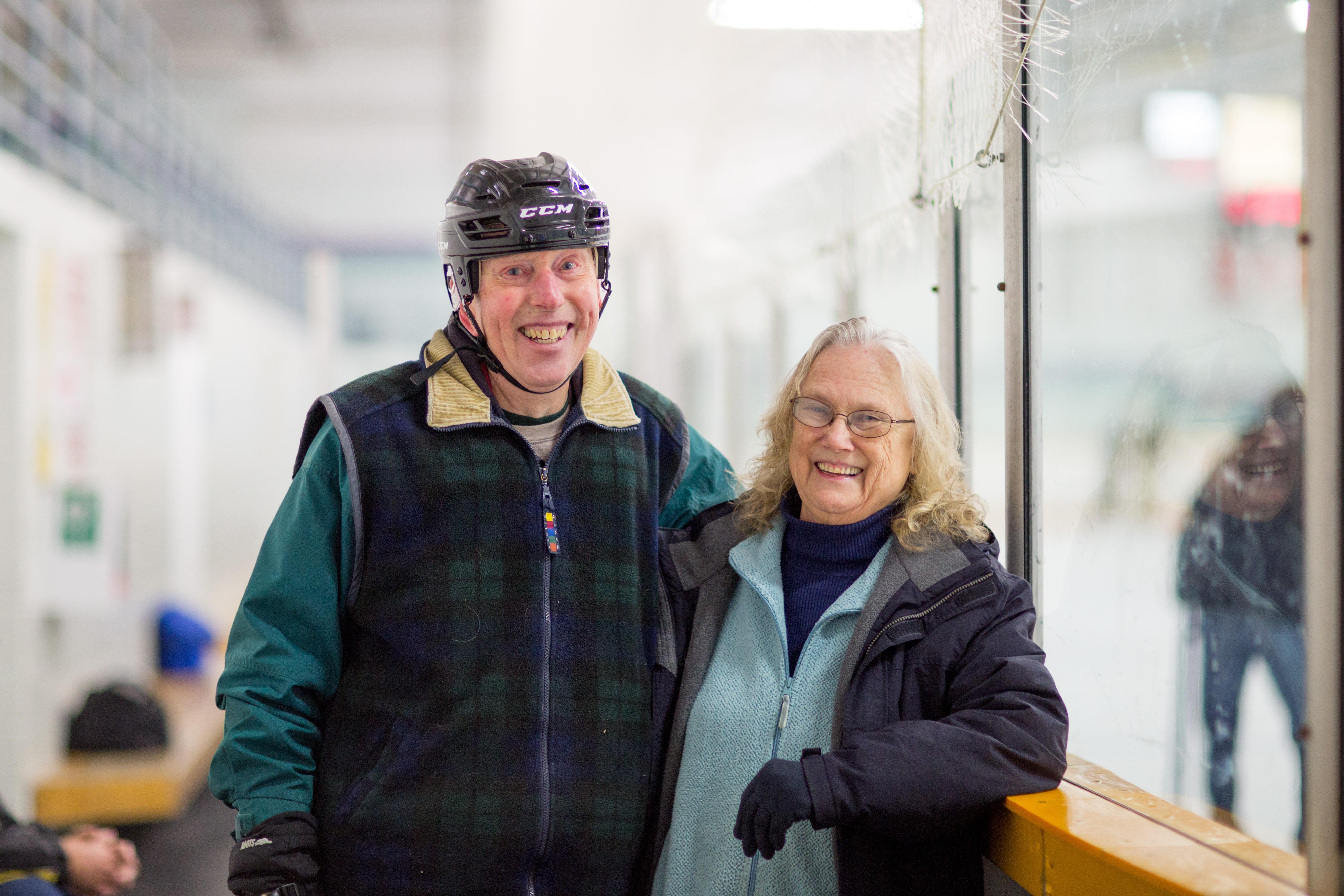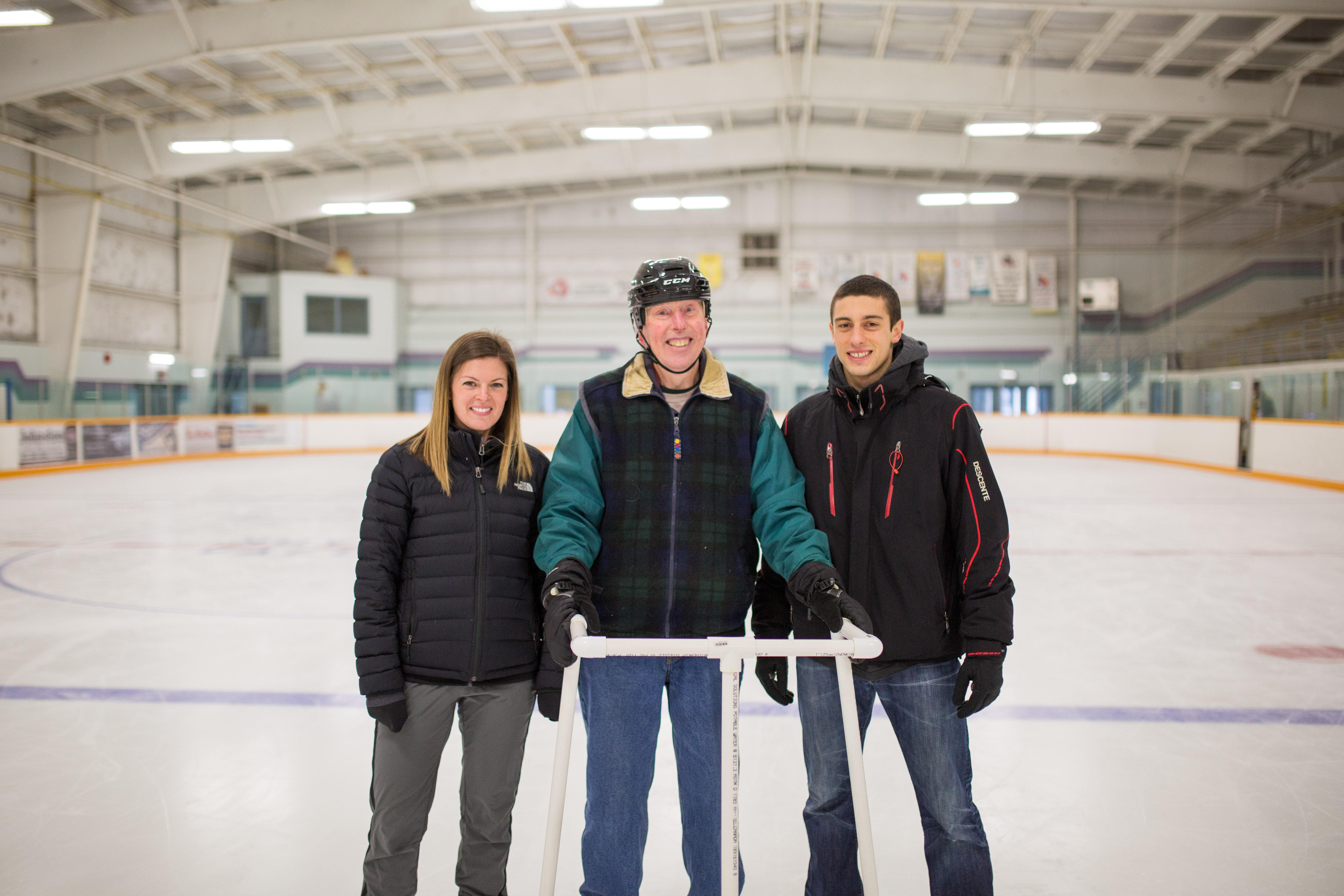
Adaptive exercise: finding a way back to the rink
Leslie Graham is a very active man. Not just for his age, though he is 74. He particularly enjoys winter sports and skis regularly.
While he remains quite fit, his balance has become a challenge—to the point that he had to give up ice skating. That’s part of what made him eligible for TRIAGE, a study run in partnership between Hamilton Health Science’s GERAS Centre for Aging Research and McMaster University’s TAPESTRY initiative, with support from the Hamilton Health Sciences Research Administration. TRIAGE follow seniors at risk of frailty, and helps them set and achieve goals to improve their health.
“Sometimes we just have to find unique ways to do it.”
“We follow participants through a six month intervention,” says TRIAGE research assistant, Aidan Giangregorio. “One component of the program is helping them identify and accomplish a health or fitness goal based on their personal interests.”
For Graham, that goal was returning to the skating rink.
“I had skated all my life, but it was getting too dangerous,” Graham says. “I gave it up because I didn’t want to fall, and I couldn’t find a device that would help me with my balance.”
Giangregorio worked with Graham to determine what he needed to accomplish his goal: a skating aid, as well as a rink that would accommodate his needs.
Graham looked online and in stores, but was only able to find children’s skating aids. Not one to get discouraged, he decided to build one. “I used plastic piping, and built my own device,” he says. “It’s basically a larger, taller version of what you see kids using.”
With that hurdle out of the way, he called around to local rinks until he found a senior’s skate that would accommodate his device. The staff at Valley Park Recreation Centre and Arena in Stoney Creek was so impressed with his aid that they sourced a similar device, and ordered a number for other participants.


“It works really well,” Graham says. “I’m happy to be skating again, and I’m happy to see other people will get the chance.”
Giangregorio is pleased to see Graham’s determination pay off. “Fitness can be challenging, especially as you age,” he says. “Leslie is a shining example of how we can blend health goals into activities that we enjoy to keep our body and mind healthy. Sometimes we just have to find unique ways to do it.”
The data from TRIAGE is currently being analyzed by GERAS scientists.
“Once the results have been compiled, we will better understand which elements of this program had the greatest benefit to the participants,” Giangregorio says.
Those results will be used to help other groups tailor care to older adults so they can age successfully in the community.
